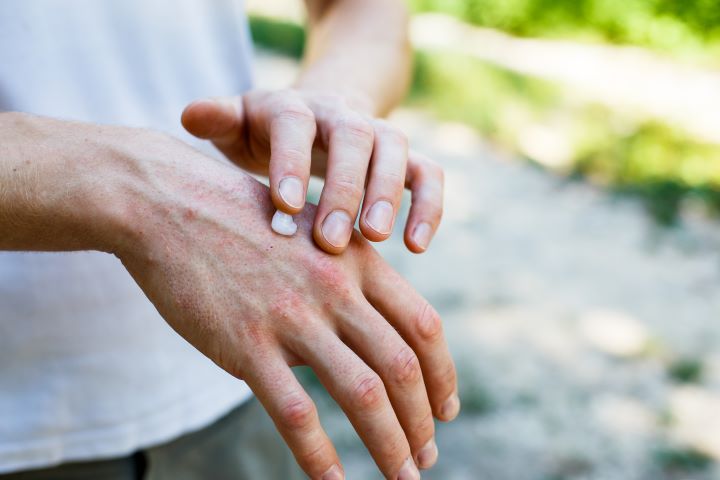Effective Eczema Treatment: Managing Skin, Rash, and Itching
Eczema (atopic dermatitis) affects millions worldwide and can show up as dry, inflamed patches, persistent itching, and recurrent rashes that interfere with sleep and daily life. Understanding practical, evidence-based approaches — from daily skin care and trigger avoidance to prescription options overseen by a clinician — helps most people control symptoms and reduce flare-ups.

This article is for informational purposes only and should not be considered medical advice. Please consult a qualified healthcare professional for personalized guidance and treatment.
What causes eczema and how does it behave?
Eczema arises from a mix of genetic, immune, and environmental factors that weaken the skin barrier and increase inflammation. People with eczema often have drier skin that loses moisture more quickly, making it more reactive to irritants and allergens. Common triggers include harsh soaps, wool or synthetic fabrics, stressful periods, temperature changes, certain foods in some children, and airborne allergens. Recognizing patterns — what precedes an attack and which environments worsen symptoms — is key to preventing flares and tailoring treatment.
How should you care for skin with eczema daily?
Daily skin care focuses on restoring and maintaining the skin barrier. Use gentle, fragrance-free cleansers and take short lukewarm baths or showers; pat the skin dry and apply a generous layer of moisturizer while skin is still slightly damp to lock in moisture. Emollients, ointments, and ceramide-containing products are often most effective. Avoid known irritants like fragranced products and rough fabrics. Regular moisturizing, sometimes multiple times per day during dry seasons or flares, can reduce the frequency and severity of rashes.
How can you recognize and treat an eczema rash?
Eczema rashes vary by age and skin type — they may appear red and scaly, darker or lighter on pigmented skin, or thickened from chronic scratching. Acute flares can be oozing or crusted if infected. First-line topical treatments commonly prescribed include topical corticosteroids to reduce inflammation and topical calcineurin inhibitors as steroid-sparing alternatives for sensitive areas. For many, applying medication early in a flare plus consistent moisturization brings symptoms under control. If signs of bacterial infection (increased pain, spreading redness, pus) appear, a clinician should evaluate the need for topical or oral antibiotics.
What helps relieve persistent itching and improve sleep?
Itching is often the most disruptive symptom. Strategies that help include regular moisturization, avoiding triggers like sweating and dry air, and using cool compresses or wet-wrap therapy during intense flares to calm the skin. Over-the-counter oral antihistamines may help some people sleep by reducing nighttime itchiness, but they do not treat the underlying inflammation. In more severe or treatment-resistant cases, a clinician might discuss short-term systemic therapies, phototherapy, or newer biologic medications that specifically target immune pathways involved in atopic dermatitis.
When should you consult dermatology for eczema?
See a dermatologist or qualified healthcare provider if eczema is widespread, markedly interferes with sleep or daily activities, resists appropriate topical therapy, or shows signs of infection. Dermatology evaluation is also warranted for frequent secondary infections, sudden changes in pattern, or when considering advanced treatments such as phototherapy or systemic immunomodulators. A specialist can confirm the diagnosis, check for related conditions (like allergic contact dermatitis), help identify triggers, and design a stepwise treatment plan tailored to disease severity and individual needs.
Conclusion
Effective eczema treatment combines consistent skin-care routines, trigger management, and appropriate medical therapies when needed. Most people gain significant symptom relief with moisturizers, gentle cleansers, targeted topical medications, and lifestyle adjustments. For persistent, severe, or complicated cases, evaluation by a dermatologist can open additional options and targeted therapies that improve quality of life and reduce recurrence. Sources of care and specific treatments should be chosen based on individual needs and professional medical advice.




